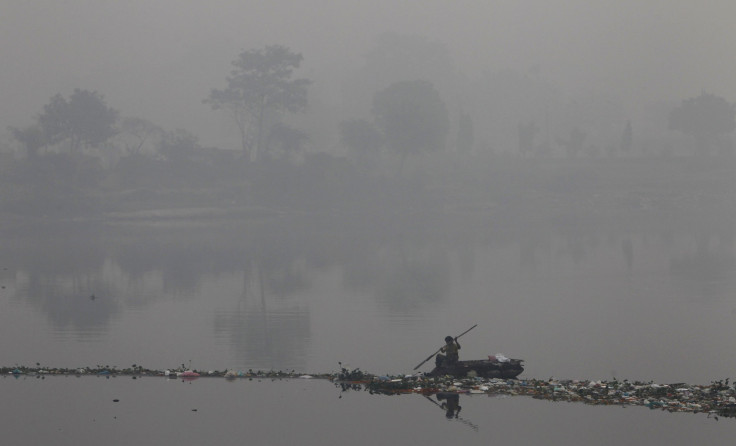Indian Government Launches Country's First 'Real-Time' Air Quality Index

The Indian government launched the country’s first National Air Quality Index on Monday to monitor the air pollution levels in major cities across the country on a “real-time basis.” The index, announced by Prime Minister Narendra Modi, will initially assess the air quality in 10 cities, including the capital New Delhi.
The index will eventually be extended to cover 22 state capitals and 44 other cities with a population of over 1 million, according to a statement released by the ministry of environment, forests and climate change. Details of how the index’s data will be gathered are not immediately clear.
Speaking at the event, Modi reportedly said that India, which is the world’s third-largest emitter of greenhouse gases, has the world’s lowest per-capita carbon emission.
“We have given a perception to rest of the world as if we are not bothered about climate and environment. The world is tackling with the challenge of global warming, but they still haven't been able to find a way. No one can question India's sensitivity towards nature protection,” Modi reportedly said, adding that India would not bow to foreign pressure to commit to binding cuts in carbon emissions.
“The world guides us on climate change and we follow them? The world sets the parameters and we follow them? It is not like that,” Modi reportedly said. The Indian government has repeatedly pushed back against efforts by the international community to set an emission reduction target, and has called for developed, industrialized nations to shoulder a major share of the burden.
However, Indian cities have consistently been ranked among the most polluted in the world. Last year, the World Health Organization ranked New Delhi as the world’s most polluted city -- a notorious distinction that was once held by Beijing. More recently, a research conducted by a team of scientists from the University of Chicago, Harvard and Yale found that “dangerously high” levels of air pollution in India are reducing the life expectancy of 660 million people -- over half of the country’s 1.2 billion population -- by over 3 years.
“Until we actually bring a change in our lifestyles, all the other efforts will go in vain,” Modi reportedly said. “We must think of traditional methods to tackle environmental issues. There can be green solutions in our age-old traditions.”
Although Modi said that India “has to take the lead in guiding the world” on ways to curb anthropogenic climate change, his own government has frequently come under criticism from environmentalists and activists for not doing enough.
In the country’s federal budget for the year 2015-16, tabled in parliament in March, the funds allocated to the environment ministry were cut by 25 percent -- from 22.6 billion rupees ($360 million) to 16.8 billion rupees ($268 million). Moreover, while the target for renewable energy generating capacity was increased, the funds for the ministry of new and renewable energy were reduced by over two-thirds, leading many to allege a “disconnect” between the government’s ambitious targets and its budget allocations.
© Copyright IBTimes 2024. All rights reserved.






















